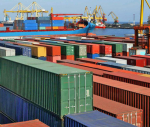You are here
Paper vs. plastic
Sep 10,2014 - Last updated at Sep 10,2014
The Jordan Food and Drug Administration announced plans to ban the use of recycled plastic bags and food containers, starting next year.
“Recycled” is better than nothing, but banning plastic bags, generally, would be an even better idea.
The move, taken late in the Kingdom when compared to many other places in the world, is most welcome.
Plastic bags are bad for the environment, as they choke wildlife, do not break down in landfills like organic material, are not easy to recycle and increase demand, already large, for oil to be produced.
These above negatives are scientifically proved, but to believe a newer version making the rounds on the Internet, while heated — like in a microwave oven — plastic bags emanate carcinogenic matter.
Our own expert, the director general of the JFDA, warns that “overusing recycled plastic in direct contact with food items transfers unhealthy chemicals to the food”.
That is scary, indeed.
Once the food and drug administration’s proposal is promulgated and enforced, pending the comments and observations of the chambers of industry and commerce and the main users of plastic bags and containers, such as bakeries and grocery stores, plastic bags will be replaced with paper or reusable textile bags and containers.
Some 3 billion plastic bags and containers are being used annually in the country. They constitute a hazard for the public health and for the environment, and a sore eye when clinging to the vegetation or blown by the wind.
Many countries that care for their peoples’ health and environment outlawed the use of plastic bags.
Jordan, with already high rates of cancer cases, should do more towards protecting the public.
JFDA has shown the way to do it; other government agencies should follow suit, and not stop at plastic bags.
Much more can be done to protect people’s health, including closer control of the use of pesticides and insecticides, monitoring exhaust fumes — and stopping cars that are not roadworthy — and purity of potable water, performing strict inspection of food products and, back to the plastic bags, raising awareness to their danger.
The JFDA’s first step is appreciated. It should not be the last, however.













